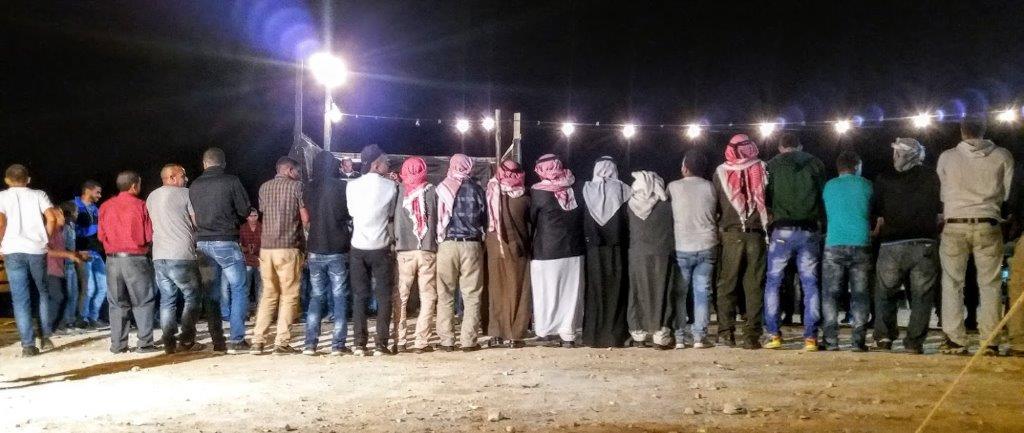
After the entrance, a Westerner may immediately start with direct questions about the other’s life. Two of the first questions are likely to be what the other person does in life, referring to either work or studies, and whether one is married and has children. For Bedouins both these questions are too direct. They will ask you to come and sit with them and have a coffee or tea. After some time they may ask where you come from; if this is from a town they know, they will ask exactly from which part of the town. Questions about work will be asked at a later stage of the acquaintance, though possibly still in the first encounter. One assumes men over 25 years of age to be married, though a question about one’s family status may be raised in a subsequent meeting. Most often, there will be no more questions about one’s nuclear family. Bashar added that historically, Bedouins are not supposed to ask their guest for his name, where he came from or where he goes, at least for three days. After that, they can ask. He sees this tradition as an issue of both privacy and security.
My experience of “getting acquainted”
The different attitude among the Bedouins toward names was not so much an obstacle, as something to become accustomed to, and as a result, the challenge was mostly behavioral. Although at first I thought that the lack of interest in my name was out of lack of interest in me, soon it became apparent that this was not the case. One’s private name is simply not that important for Bedouins, and about my family name, they could not care less. I had to get used to Bedouin style introductions. The questions one asks when meeting someone for the first time become an automatic part of getting acquainted. It was at times difficult to stop this automatism, and stay aware that in this culture certain – to me standard – questions are not appreciated, at least not at an early stage of the acquaintance. Although at times I would have wished this was not the case, on acquaintance among the Bedouins I was always perceived as an outsider, a foreigner, by my outstanding physique – lighter skin color and greater length. Other Palestinians would consider also the option that I am Israeli, or infrequently think I am “one of them” (or at least approach me in Arabic).







